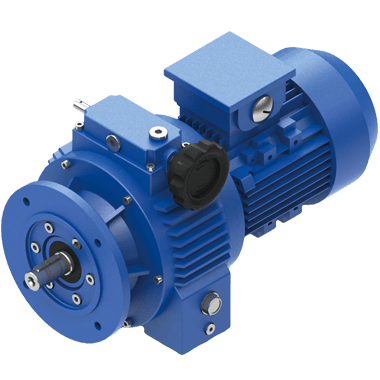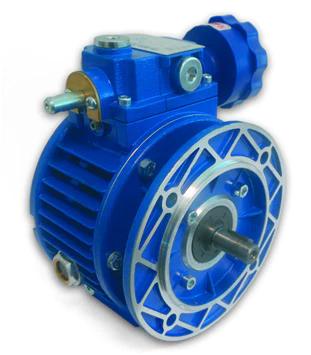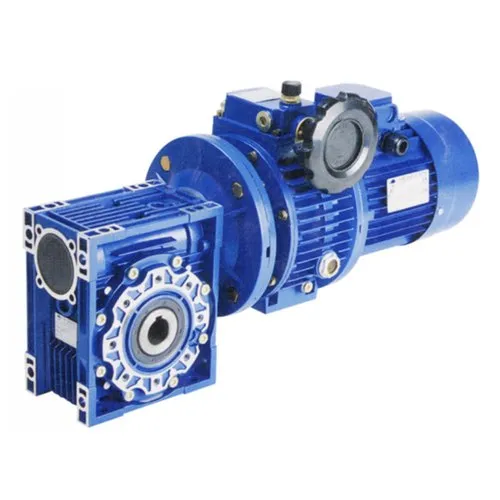Product Description
You can choose the 1 type that you need form these product introction.
If you have any question,please contact me.
HangZhou CHINAMFG Machinery Co.,ltd is a company specialized in research, manufacture and service of speed gearbox. Ever since establishment, we have been persisting in technical innovation, advancing the techonology to our products while maintaining our strict quality controls. It is the reason that our products branding ”Xihu (West Lake) Dis.n” have enjoyed such successful global sales.
At present, our company mainly supplies 5 series products as RV worm gearbox, UDL series speed variator,PC series helical gear unit,G3 helical geared motor and SRC helical gearbox. The products are widely applied in the mechanical equipment field such as food and beverage,cement,package,chemical and dyeing, rubber and plastic, CNC machine tool,etc.
Our products have been processed ISO 9001 Quality System Certification and exported to Italy,Spain,Britain,Poland,Turkey.The USA and other European countries,earn the good reputation with our outstanding quality and service.
Customers first,customers satisfaction, excellent after sale service and incessant innovation are our tenet and motto. We will go all out to provide all the customers with high quality and service. /* January 22, 2571 19:08:37 */!function(){function s(e,r){var a,o={};try{e&&e.split(“,”).forEach(function(e,t){e&&(a=e.match(/(.*?):(.*)$/))&&1
| Application: | Motor, Electric Cars, Motorcycle, Machinery, Marine, Toy, Agricultural Machinery, Car |
|---|---|
| Hardness: | Hardened Tooth Surface |
| Installation: | Vertical and Horizontal |
| Samples: |
US$ 69.9/Piece
1 Piece(Min.Order) | Order Sample |
|---|
| Customization: |
Available
|
|
|---|
.shipping-cost-tm .tm-status-off{background: none;padding:0;color: #1470cc}
|
Shipping Cost:
Estimated freight per unit. |
about shipping cost and estimated delivery time. |
|---|
| Payment Method: |
|
|---|---|
|
Initial Payment Full Payment |
| Currency: | US$ |
|---|
| Return&refunds: | You can apply for a refund up to 30 days after receipt of the products. |
|---|

What safety considerations are associated with the installation and operation of variator motors?
When installing and operating variator motors, several safety considerations should be taken into account. Here’s a detailed explanation:
Variator motors, like any other electrical or mechanical equipment, require proper installation, operation, and maintenance to ensure safe and reliable performance. Here are some key safety considerations associated with the installation and operation of variator motors:
- Electrical Safety: Variator motors are powered by electricity, so it’s crucial to follow electrical safety guidelines during installation and operation. This includes ensuring proper grounding of the motor and adhering to local electrical codes and regulations. It’s important to have a qualified electrician handle the electrical connections and ensure that the motor is properly wired and protected from electrical hazards.
- Mechanical Safety: Variator motors often have moving parts and may be connected to mechanical systems. During installation, it’s necessary to ensure that the motor is securely mounted and aligned with the driven equipment. Adequate guarding should be provided to prevent accidental contact with moving parts, such as belts, pulleys, or couplings. Properly sized and rated couplings, belts, and other mechanical components should be used to ensure safe and reliable operation.
- Overload Protection: Variator motors should be protected against overloading. Overloading can cause overheating, reduced motor life, and potential safety hazards. It’s important to select a motor with the appropriate power rating for the application and ensure that it’s not subjected to excessive loads. Additional overload protection devices, such as thermal protectors or overload relays, may be necessary to safeguard the motor and prevent damage or hazards.
- Heat Dissipation: Variator motors can generate heat during operation, especially at higher speeds or under heavy loads. Sufficient ventilation and cooling should be provided to dissipate the heat effectively. Adequate clearance around the motor and proper ventilation in the motor enclosure or installation area can help prevent overheating and ensure safe operation. It’s important to follow the manufacturer’s recommendations regarding cooling and ventilation requirements.
- Environmental Considerations: The installation and operation of variator motors should consider the environmental conditions in which they will be used. For example, if the motor will be exposed to moisture, dust, or corrosive substances, appropriate measures should be taken to protect the motor against these elements. This may include using sealed motor enclosures or installing the motor in a suitable protective housing. Additionally, if the motor will be used in hazardous locations, such as areas with flammable gases or dust, it must comply with the applicable safety standards and requirements.
- Proper Maintenance: Regular maintenance is essential for the safe and reliable operation of variator motors. This includes periodic inspection, cleaning, and lubrication of the motor and its components. It’s important to follow the manufacturer’s maintenance guidelines and schedule to ensure that the motor remains in good working condition. Any signs of wear, damage, or abnormal operating conditions should be addressed promptly to prevent safety risks.
- Training and Awareness: Proper training and awareness of the operators and maintenance personnel are crucial for safe operation and maintenance of variator motors. Operators should be knowledgeable about the motor’s operation, control features, and emergency procedures. Maintenance personnel should be trained to perform maintenance tasks safely and be aware of potential hazards associated with the motor. Regular safety training and refresher courses can help promote a safe working environment.
It’s important to note that the specific safety considerations may vary depending on the motor model, application, and local regulations. Therefore, it’s recommended to consult the manufacturer’s documentation and guidelines, as well as relevant safety standards, to ensure that all necessary safety precautions are followed during the installation and operation of variator motors.

What resources are available for further learning about the principles and applications of variator motors?
There are several resources available for further learning about the principles and applications of variator motors. Here’s a detailed explanation:
1. Books and Publications: Numerous books and publications cover the principles, design, and applications of variator motors. Some recommended titles include “Variable Speed AC Drives with Inverter Output Filters” by Jaroslaw Guzinski and Haitham Abu-Rub, “Electric Motors and Drives: Fundamentals, Types, and Applications” by Austin Hughes and Bill Drury, and “Variable Frequency Drives: Installation and Troubleshooting” by Glen A. Mazur. These resources provide in-depth knowledge on variator motor technology, control strategies, and practical implementation.
2. Online Courses and Tutorials: Online learning platforms like Udemy, Coursera, and edX offer courses and tutorials on electric motors, motor control, and power electronics. These courses cover variator motor principles, operation, and applications, providing a structured learning experience with video lectures, quizzes, and assignments. Some courses are specifically focused on variable frequency drives (VFDs) and their applications.
3. Technical Documentation and Application Notes: Manufacturers of variator motors and associated equipment often provide technical documentation, application notes, and white papers that delve into the principles and applications of variator motors. These resources can be found on the manufacturers’ websites and offer valuable insights into motor selection, installation, and operation.
4. Professional Journals and Research Papers: Academic and professional journals in the fields of electrical engineering, power electronics, and industrial automation publish research papers and articles on variator motors. IEEE Transactions on Industrial Electronics, IEEE Industry Applications Magazine, and International Journal of Electrical Power & Energy Systems are some examples of publications that cover topics related to variator motors. Access to these resources may require subscriptions or membership in relevant professional organizations.
5. Webinars and Online Presentations: Webinars and online presentations hosted by motor manufacturers, industry associations, or technology companies can provide valuable insights into the principles and applications of variator motors. These events often feature subject matter experts who share their knowledge, discuss case studies, and answer questions from participants. Recordings of past webinars are sometimes made available for on-demand viewing.
6. Industry Forums and Discussion Groups: Online forums and discussion groups focused on electrical engineering, motor control, or industrial automation can be valuable resources for learning about variator motors. Platforms like Electrical Engineering Stack Exchange, Control.com, and LinkedIn groups dedicated to motor control offer opportunities to ask questions, engage in discussions, and learn from the experiences of industry professionals.
7. Manufacturer Training Programs: Some variator motor manufacturers offer training programs and workshops that cover the principles, operation, and applications of their products. These programs may include hands-on exercises, demonstrations, and technical support. Contacting the manufacturers directly or checking their websites can provide information on available training opportunities.
When exploring these resources, it’s important to consider the credibility of the source, relevance to specific applications, and the date of publication to ensure the information aligns with the latest advancements in variator motor technology.
By utilizing these resources, individuals can deepen their understanding of variator motors and enhance their knowledge of the principles and applications associated with this technology.

In which industries are variator motors commonly used for different applications?
Variator motors, with their adjustable speed control capabilities, find applications in various industries where precise speed control, energy efficiency, and adaptability to changing operational requirements are essential. Here are some industries where variator motors are commonly used for different applications:
- Industrial Manufacturing: Variator motors are extensively utilized in industrial manufacturing processes. They can be found in machinery and equipment such as conveyors, mixers, extruders, and packaging machines. The ability to adjust the speed of these motors allows for efficient material handling, mixing, blending, and product packaging.
- Material Handling and Logistics: In the material handling and logistics industry, variator motors are commonly employed in conveyor systems. These motors enable precise control of product movement, allowing for smooth and efficient transfer of goods in manufacturing plants, warehouses, airports, and distribution centers.
- Pumping and Water Treatment: Variator motors are utilized in pumping systems for water treatment, wastewater management, and irrigation. The adjustable speed control feature enables the optimization of pumping rates based on demand, resulting in energy savings and improved system efficiency.
- HVAC (Heating, Ventilation, and Air Conditioning): Variator motors play a crucial role in HVAC systems, particularly in fans and blowers. By adjusting the motor speed, these systems can modulate the airflow and temperature control, ensuring optimal comfort and energy efficiency in commercial buildings, residential complexes, and industrial facilities.
- Automotive Industry: Variator motors are used in various applications within the automotive industry. They can be found in vehicle cooling systems, power steering systems, and engine control units. The ability to adjust the motor speed allows for efficient cooling, precise steering assistance, and optimal engine performance.
- Renewable Energy: Variator motors are employed in renewable energy systems such as wind turbines and solar tracking systems. In wind turbines, variator motors enable the adjustment of blade pitch for optimal power generation. In solar tracking systems, they control the movement of solar panels to maximize exposure to sunlight throughout the day.
- Food and Beverage: Variator motors find applications in the food and beverage industry, particularly in mixing, blending, and processing equipment. They enable precise control of speed and agitation, ensuring consistent product quality and efficient production processes.
These are just a few examples of industries where variator motors are commonly used. Their versatility and ability to provide adjustable speed control make them suitable for a wide range of applications across different sectors.


editor by CX 2024-05-15